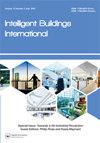Underutilization of waste as a resource: bottom-up approach to waste management and its energy implications in Lagos, Nigeria
IF 1.7
Q2 CONSTRUCTION & BUILDING TECHNOLOGY
引用次数: 3
Abstract
ABSTRACT The inadequate and improper waste management strategies adopted in Lagos state has led to significant levels of negative externalities with deterrent impact on the health, wellbeing and environment of its residents. This study utilizes a bottom-up approach, which is informed by the knowledge and opinions of over 200 residents in Lagos, which was obtained from the direct administration of a survey questionnaire. The sampling method utilized is critical case sampling due to the exploratory nature of this study. The findings highlight the poor status of the waste management services and the need for public awareness on proper waste disposal strategy. The main challenges revealed from this study is the insufficient or lack of waste collection and separation infrastructures and the inadequate operations of waste collection services. These challenges currently deter the potential for waste to energy solutions as observed in the energy map constructed. The improvement strategies include the development of regulatory infrastructures for guiding the waste sector, improvement of financing to the waste sector by government investment or increasing waste fees levied, raising awareness on sustainable and proper waste management practices, and investing in appropriate technologies, infrastructures and manpower to enable adequate operation of waste collection and recycling facilities.废物资源利用不足:尼日利亚拉各斯自下而上的废物管理方法及其对能源的影响
拉各斯州采用的不充分和不当的废物管理战略导致了对居民健康,福祉和环境产生威慑影响的负面外部性的显著水平。本研究采用自下而上的方法,通过直接管理调查问卷获得拉各斯200多名居民的知识和意见。由于本研究的探索性,所采用的抽样方法是关键案例抽样。调查结果突显了废物管理服务的落后状况,以及提高公众对适当废物处置策略的认识的必要性。这项研究揭示的主要挑战是废物收集和分类基础设施不足或缺乏,以及废物收集服务的运作不足。正如所构建的能源图所示,这些挑战目前阻碍了废物转化为能源的解决方案的潜力。改善策略包括发展规管基础设施,以指引废物界别;透过政府投资或提高废物收费,改善废物界别的资金来源;提高对可持续和适当的废物管理方法的认识;以及投资适当的技术、基础设施和人力,使废物收集和回收设施能充分运作。
本文章由计算机程序翻译,如有差异,请以英文原文为准。
求助全文
约1分钟内获得全文
求助全文
来源期刊

Intelligent Buildings International
CONSTRUCTION & BUILDING TECHNOLOGY-
CiteScore
4.60
自引率
4.30%
发文量
8
 求助内容:
求助内容: 应助结果提醒方式:
应助结果提醒方式:


